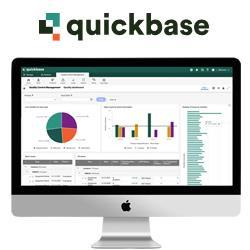Agilent Technologies and FDA Collaborate to Improve Testing for Salmonella
Project Also Seeks to Develop Better Tools to Test Truth of Seafood Labels
SANTA CLARA, Calif., March 19, 2012
Agilent Technologies Inc. (NYSE: A) today announced that it has entered into a Cooperative Research and Development Agreement with the U.S. Food and Drug Administration to develop new tools to detect and analyze pathogens in food.
The joint R&D effort will also seek to improve DNA-based tools for confirming that seafood is correctly labeled.
The goal of the first part of the project is to develop a novel assay panel to identify subtypes of salmonella in food. When outbreaks occur, knowing the subtype can help officials quickly identify the source of the pathogen and hopefully limit the number of victims. The research will focus on using mass spectrometry-based genotyping to quickly identify salmonella subtypes.
"This effort on the part of Agilent is of extraordinary importance to the FDA," said Eric W. Brown, Ph.D, director, Division of Microbiology, FDA. "We expect this collaboration will be an important step in the development of new and specific tools for tracking bacterial pathogens in foods."
The second part of the agreement - to be carried out in collaboration with both the FDA and the Campden BRI laboratory in the United Kingdom - aims to update Agilent's lab-on-a-chip method of DNA analysis to identify fish species. Agilent's analytical technique can identify species even after the fish has been processed, which generally removes identifying features such as the head, tail and skin. The technology is based on the Agilent Bioanalyzer, using restriction fragment length polymorphism. The goal is to make this technology fast, inexpensive and simple enough that many kinds of laboratories can use it on a routine basis. This type of test could detect such things as intentional mislabeling to avoid tariffs and import restrictions or economic fraud where a less expensive species of fish is sold as a more costly species.
"We're very pleased to be collaborating with the FDA, because this work holds tremendous potential for solving some very challenging threats to the safety and integrity of the food supply," said Paul Zavitsanos, Agilent Global Food Safety manager. "There's real value in applying biological analysis techniques to food safety, and this collaboration advances our shared vision."
For more information about Agilent's food testing tools, visit www.agilent.com/chem/foodsafety.
Featured Product

Quickbase: The first application platform built for dynamic work
By connecting everything through a single source of truth, the Quickbase platform helps businesses mitigate risk, reduce waste, and cut down on unexpected costs. With automated workflows and granular permissions, the right people will have access to the right information.
